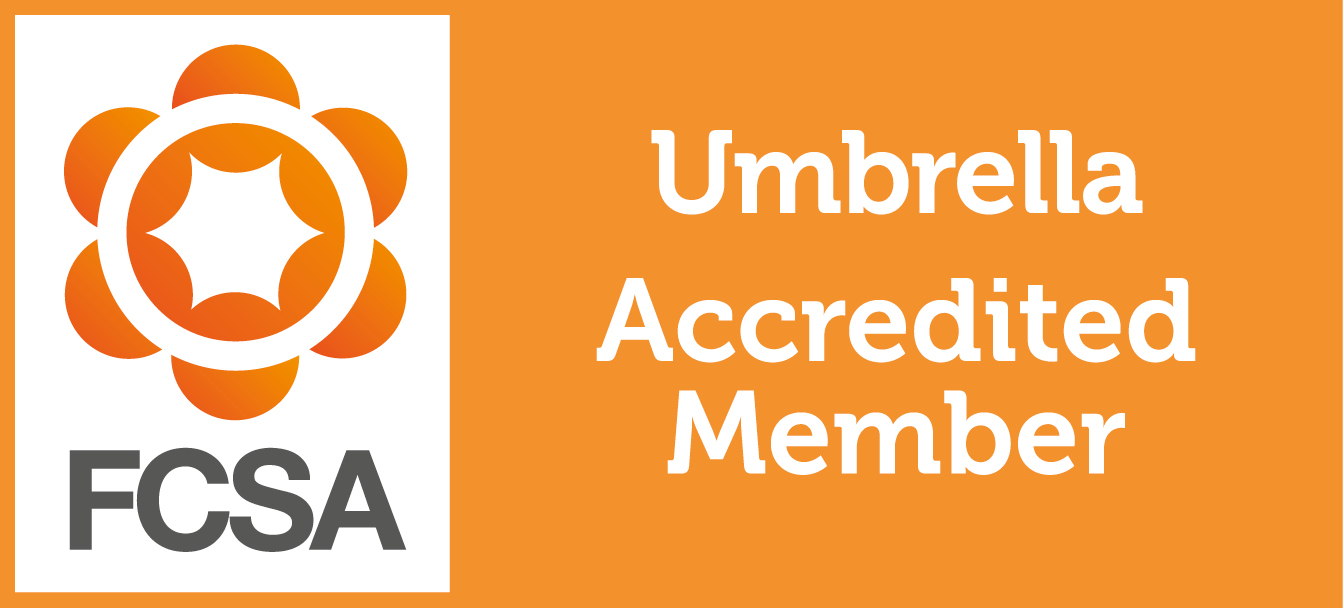
Whether you are new to contracting, or have been only operated through a personal service company (PSC), the concept of using a PAYE umbrella company may be unfamiliar. One of the most frequently asked questions by contractors who are new to umbrella companies is about take home pay retention. The following article will provide you with a detailed explanation of the deductions you can expect to see to your pay when you register with an umbrella company – so you know how much of your hard-earned money you should expect to retain.
The margin
Every umbrella company will charge a weekly or monthly fee (referred to as a margin) for you to use their service. The margin is the only income that the umbrella company will retain for themselves to cover their overheads, and it is taken from your gross pay (before any tax is calculated). This is done so that you benefit from tax relief on the margin – making it as tax efficient as possible.
An umbrella company’s margin can range from anywhere between £15 – £30 per week, and it is the only deduction that will alter your take home pay between compliant umbrella companies. And, even then, it will only be by a couple of pounds!
Income Tax
When you register with an umbrella company, they will become your employer, and will pay you like a permanent employee (Pay as You Earn, or ‘PAYE). PAYE is a system HMRC uses to collect Income Tax and National Insurance Contributions (NICs) from individuals before they are paid. The amount of Income Tax you are required to pay will depend on your tax code and the tax band you fall into – after the tax-free Personal Allowance.
Employees National Insurance Contributions
Just like Income Tax, Employees NICs are deducted from your wages and paid to HMRC on your behalf – before you are paid a net salary. Employees NIC rates are 12% on income between £183 – £962 a week, and 2% on any income above £962 (for the 2020/21 tax year).
Employers National Insurance Contributions
Employers NICs is the deduction that causes the most uncertainty amongst contractors, and we’re not surprised. One of the most common questions we’re asked by first-time umbrella contractors is why they are responsible for the Employer’s NICs – because it’s an employment cost. Let us explain.
Even though the umbrella company employs you, they are not benefitting from any of the work you are doing. Instead, they are only responsible for processing your payroll. As the only income they generate is their margin, umbrellas would be operating at a significant loss if they were to cover the employment costs.
The employment costs should be taken into account when a contractor agrees their assignment rate with their agency or client. It’s very important that this is raised before signing a contract. Many agencies and end-clients are already offering automatic uplifts for contractors that are required to use an umbrella company – to cover the employment costs.
You can find a more detailed explanation about employment costs on our blog and FAQs page.
The Apprenticeship Levy
The Apprenticeship Levy is a government-funded scheme that employers in large companies (annual payroll over £3 million) are required to make contributions towards to subsidise apprenticeships throughout the UK. Similarly, to the Employers NIC, the Apprenticeship Levy is considered an employment cost and is taken from the assignment rate.
Holiday Pay
Although Holiday Pay does not technically count as a deduction (it is a reallocation of your money), it is another area that causes a lot of confusion for contractors. Most umbrella companies will work out holiday pay as 25% of your gross income, which you can use to put towards any time off or holidays.
It is important to note that holiday pay is not a deduction even, though it is listed as one on your payslip. This is a legal requirement for all umbrella companies as your employer. Holiday pay is a reallocation of your own money which you can treat as holiday pay for planned time off or a gap between contracts, or you can have it paid to you alongside your regular salary. You are no better or worse off when it comes to Holiday Pay through an umbrella company.
Pension Contributions
As your employer, it is a legal requirement for your umbrella company to enrol you into a workplace pension scheme. You don’t have to stay with the pension scheme, and you have the option to opt-out. Before you register with an umbrella company, they will be happy to talk you through with pension scheme provider they use to help you make an informed decision about whether to continue with it or not.
Student Loan Deductions
Student loan deductions will appear on your payslip if you are on the type 1 or type 2 student loan repayment scheme.
How much will I earn through an Umbrella Company after all deductions?
Contractors and freelancer should expect to retain roughly the same as workers in permanent employment (PAYE). However, everybody’s circumstances are different, and therefore, we recommend you contact a compliant umbrella company (like us) and request a free, tailored take home pay projection. A lot can impact your take home pay, including your tax code, rate of pay, hours works, student loan repayments, etc.
Are you interested in registering with a compliant umbrella company?
Umbrella Company UK has a range of FCSA accredited umbrella payroll services for you to choose from, and our expert team would be delighted to talk you through your options. Please give us a call on 01707 669023 for more information about our services or complete the short form on our website to sign up today.






